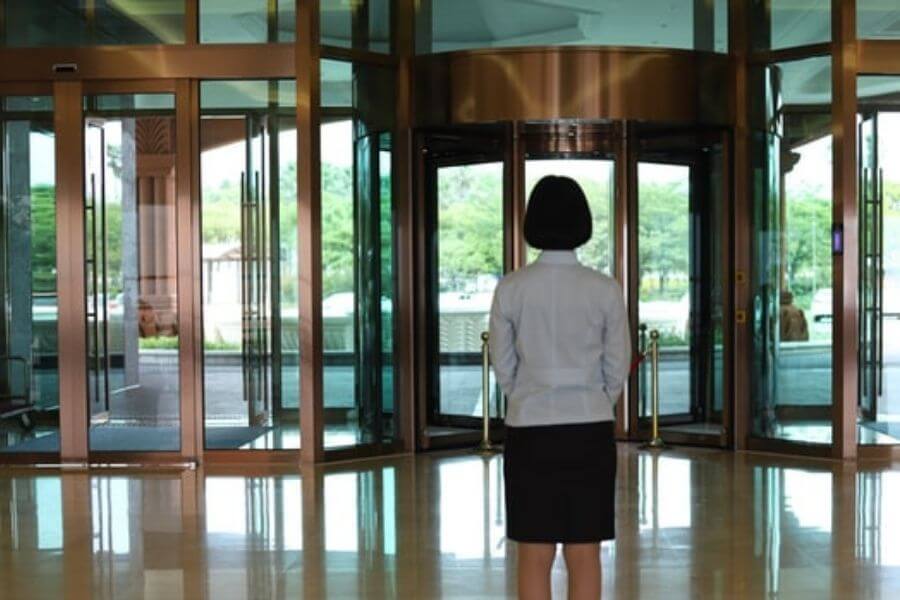
Key Takeaways:
- Over the nine years since 2012, a total of 149,000 judges and prosecutors, not including retirees, has left their positions.
- It is generally believed that judges and prosecutors are returning to law practice for higher income. However, statistics show that only a few have changed their careers to lawyers.
- Chinese judges often have a relatively strong willingness to leave the bench. High work intensity, long working hours, and high occupational risk are the major reasons for their dissatisfaction with work.
Since 2012, 149,000 Chinese judges and prosecutors have left their positions (excluding retirements), with the turnover rate reaching 8%.
The data above were disclosed in a meeting on Aug. 30, 2021, by Mr. Chen Yixin (陈一新), the General Secretary of the Committee of Political and Legal Affairs, a department under the Communist Party of China (CPC) responsible for legal affairs.
I.The exodus of Chinese judges and prosecutors
Over the nine years since 2012, a total of 149,000 judges and prosecutors, not including retirees, has left their positions.
This means that an average of 16,555 judges and prosecutors chose to leave before reaching their retirement age each year.
So, how many judges and prosecutors are there in China?
China’s Supreme People’s Court (SPC) initiated a reform on the judge quota system in 2014. Before the reform, there were 200,000 judges in total. In 2017, the SPC announced that only 120,000 judges had remained, and it hasn’t updated the data since then.
Similarly, China’s Supreme People’s Procuratorate (SPP) also launched the reform on the prosecutors' quota system. Before that, the number of Chinese prosecutors was 158,000, and it dropped to 86,000 by 2017. The SPP hasn’t updated the data since then.
As a rough estimate, if we add up the number of judges (120,000) and that of prosecutors (86,000), the total number of judges and prosecutors is 206,000.
With 16,555 judges and prosecutors leaving each year, an annual turnover rate is exactly 8%.
A document titled ‘Report On Judicial Salaries And Turnover For Fiscal Years 2016 and 2017’ showed that the voluntary turnover rate in Texas courts was 6.4%, which could be used as a reference in comparison with the number (8%) in China.
II. What did the judges and prosecutors do after leaving?
Of the 149,000 judges and prosecutors who left their office, 7,640 (5%) of them pursued a career as a lawyer.
In the Chinese legal profession, it is generally believed that judges and prosecutors are leaving their jobs to become lawyers for higher income. However, the statistics show, quite the opposite, that only a few have changed their careers to lawyers.
This might be the result of strict restrictions in Chinese laws.
According to Chinese laws, former judges and prosecutors cannot appear as lawyers in serving as legal representatives or defenders within two years after leaving office.
The SPC has promulgated “Opinions on the Implementation of the ‘Opinions on Regulating the Post-Government Employment” (关于贯彻执行<关于规范公务员辞去公职后从业行为的意见>的实施意见), which prohibits judges from, within three years of leaving office,:
(1) entering into employment with any law firm,
(2) entering into employment with other entities that are in regular connection with their former employment,
(3) engaging in for-profit litigation activities, and
(4) engaging in other for-profit activities that are in regular connection with their former employment.
Prosecutors have been subject to similar restrictions.
That being said, however, among the 7,640 people who left their jobs to become lawyers, 2,044 people still practiced law in violation of the rules, accounting for nearly 30% of the total number.
According to the General Secretary Chen Yixin (陈一新) in his speech, the SPC, SPP, and Ministry of Justice are formulating the “Opinions on Establishing a Sound Institutional Mechanism to Prohibit Improper Contact and Interaction Among Judges, Prosecutors and Lawyers” (关于建立健全禁止法官、检察官与律师不正当接触交往制度机制的意见), refining the negative list of misconducts and improper interaction among judges, prosecutors and lawyers, as well as improving the post-employment restrictions on the judicial branch.
III. Our comments
In our previous article, A Questionnaire Survey of Chinese Judges' Job Satisfaction, we introduced that:
“Among the surveyed judges, 94.47% considered leaving the court, 57.37% seriously considered leaving the court, and 9.81% are currently preparing to resign. Only 5.53% of the judges never think of leaving the court.
Among the judges who are very satisfied with their current work, 38.2% of them never think of leaving the bench, whereas 32.4% of them occasionally had this thought, and only 29.4% of them seriously considered leaving the court.
However, the judges who are slightly dissatisfied with their current work have a stronger intention to leave. Among these judges, only 1.9% have never thought of leaving the court, 66.71% seriously considered doing so, and 8.4% are currently preparing to leave the bench.”
It shows that Chinese judges often have a relatively strong willingness to leave the bench. High work intensity, long working hours, and high occupational risk are the major reasons for their dissatisfaction with work.
This to some extent explains why 149,000 judges and prosecutors have left in the past nine years.
Moreover, it is worth noting that not many lawyers in China have switched careers to become judges. For more discussion on this topic, please read an earlier post ‘Can Chinese Lawyers Serve as Judges?’.
Photo by Nagesh Badu on Unsplash
Contributors: Guodong Du 杜国栋









